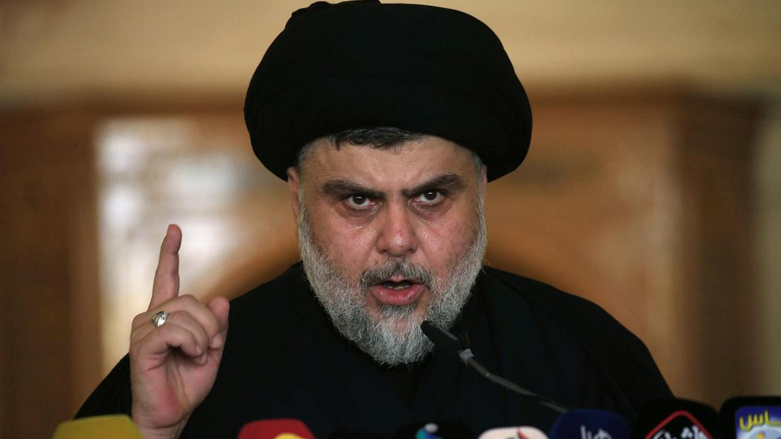‘It's too late:’ Populist Iraqi cleric Sadr sides with protesters

ERBIL (Kurdistan 24) – Firebrand Iraqi cleric Muqtada al-Sadr on Saturday showed ostensible support for a recent wave of national protests set to take place again this week, saying that the political class has been unable to address the people’s dire situation and that, despite efforts to do so, it was “too late.”
In early October, nationwide protests that lasted about a week took a violent turn after the government's harsh response, resulting in the deaths of at least 100 people and injuring over 6,000 others. To deter demonstrations, security forces used live rounds and snipers—who were allegedly deployed by Iranian-backed Shia militias—to target protesters in various parts of the country.
Shortly after crowds of thousands began taking to the streets, Prime Minister Adil Abdul Mahdi attempted to calm demonstrators with promises of reform and a cabinet shuffle. They failed to quell the anger of the public, who continue to call for a complete governmental overhaul amid shortages of public services, high rates of unemployment, and chronic institutional corruption.
Read More: Iraqi PM promises reform as protest death tolls surge
Activists have told Kurdistan 24 that another major demonstration is planned for Baghdad and other cities on Oct. 25. This follows the Shia religious observance called Arbaeen, during which millions of worshippers will be marching to holy sites in Iraq.
Many protesters have said they can no longer trust the government’s promises to enact meaningful reform, fight corruption, and facilitate increased employment.
In a statement to people he addressed as “rebels,” Sadr said that it was their “right” to demonstrate. “All the politicians and the government are living in horror and hysteria from the people’s rise,” he said, adding, “All of them are trying to remedy their situation, but they have not and will not be able to do so. It's too late.”
“All of them want to offer temptations to silence you with government jobs and salaries,” he continued. “All of them have prepared themselves for the worst-case scenarios. All of them have come together to find solutions, but there will be no solution as the government is completely incapable of reforming what has been corrupted.”
This marks the sharpest criticism of Abdul Mahdi's government yet from Sadr, who in speeches always casts himself as outside the political class despite leading the coalition that won the last national election, now one of the two most influential coalitions in the Iraqi parliament. Though Sadr speaks as an opposition figure, Abdul Mahdi, a compromise candidate between the two top legislative coalitions, rules with the cleric's blessing.
Related Article: Iraq PM says committed to reform, will reveal deadly protest inquiry results 'soon'
Officials close to Sadr have said that he “regretted” Abdul Mahdi’s nomination. Sadr has repeatedly said he would give the government one year to implement reforms or he would withdraw his support from it.
A political source told Kurdistan 24 on Sunday that Sadr has broached the topic of resignation to the prime minister more than once “through different channels.”
Sadr added in his statement, "If you want to be free in your country, you have to get rid of corruption and the corrupt, and don't hope your government will try them.”
He also told protesters that if they did not want to “revolt,” voting for better representatives was a second option.
Editing by John J. Catherine
